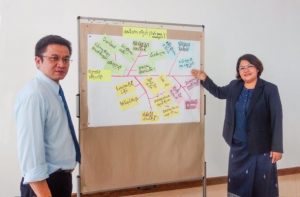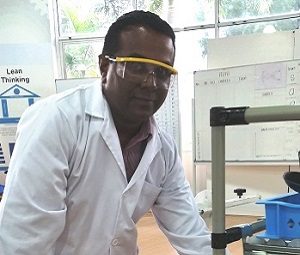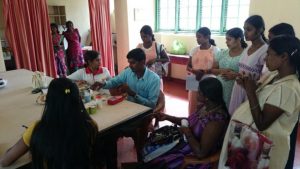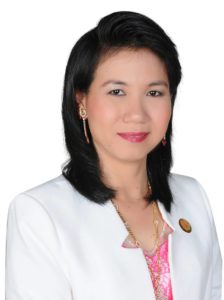
Select Page

APO training and NPS aid helped Wijeya Newspapers take up the energy conservation drive that curbed spending by 9.4% in a year. The chief operating officer (COO) of Wijeya Newspapers Limited (WNL), one of Sri Lanka’s leading newspaper publishers, was tasked with spearheading an energy conservation pilot project aimed at reducing the organization’s energy consumption, […]

Somchay Soulitham shares how learning from an APO session helps her offer better consultancy to SMEs in Lao PDR.
If Somchay Soulitham were the kind of person who thrived on simply staying in her comfort zone, then she never would have applied to participate in an APO project. By her own admission, Enterprise & Development Consultants Company Limited (EDC), the private consulting company she works for in Lao PDR, was not facing any real challenges apart from a disorganized storage and filing system. But as EDC’s founder, Managing Partner, and Human Resources Manager, Somchay could not have only her own interest at heart.

Perseverance, and a slew of APO tools, helped Amrish Narayan to rapidly build his mark as an accomplished consultant and trainer.
It was the hunger to improve his knowledge and skills in productivity and quality tools that propelled Amrish Narayan to enroll in Asian Productivity Organization (APO) projects from 2011. At the time, he had just joined the Fiji National Training and Productivity Centre (NTPC), with zero experience in consultancy and very little in training.

As the African proverb goes, it takes a village to raise a child. But the people of the Rothschild and Sogama tea plantations of Nuwara Eliya in Sri Lanka had been frequently denied this basic privilege for years.
In the mid-1990s, the maternal mortality rate (MMR) on tea plantations across Sri Lanka ranged from 0.9 to 1.9 per 1,000 live births, which was higher than the national average. As recently as 2012, the infant death rate in the country stood at 6%, with every single case occurring on the plantations. Over the next year, that figure climbed to 20%.

Keo Mom, now the CEO of LyLy Food Industry, had a dream for her business that went beyond making a stamp on the industry.
The other half of her plan was providing badly needed employment opportunities to Cambodia’s farmers and lower-income groups. Her business blueprint involved producing high-quality, nutritious snacks for the Cambodian market and neighboring countries made in a sustainable way, and achieving HACCP and ISO standards for health, safety, and quality.